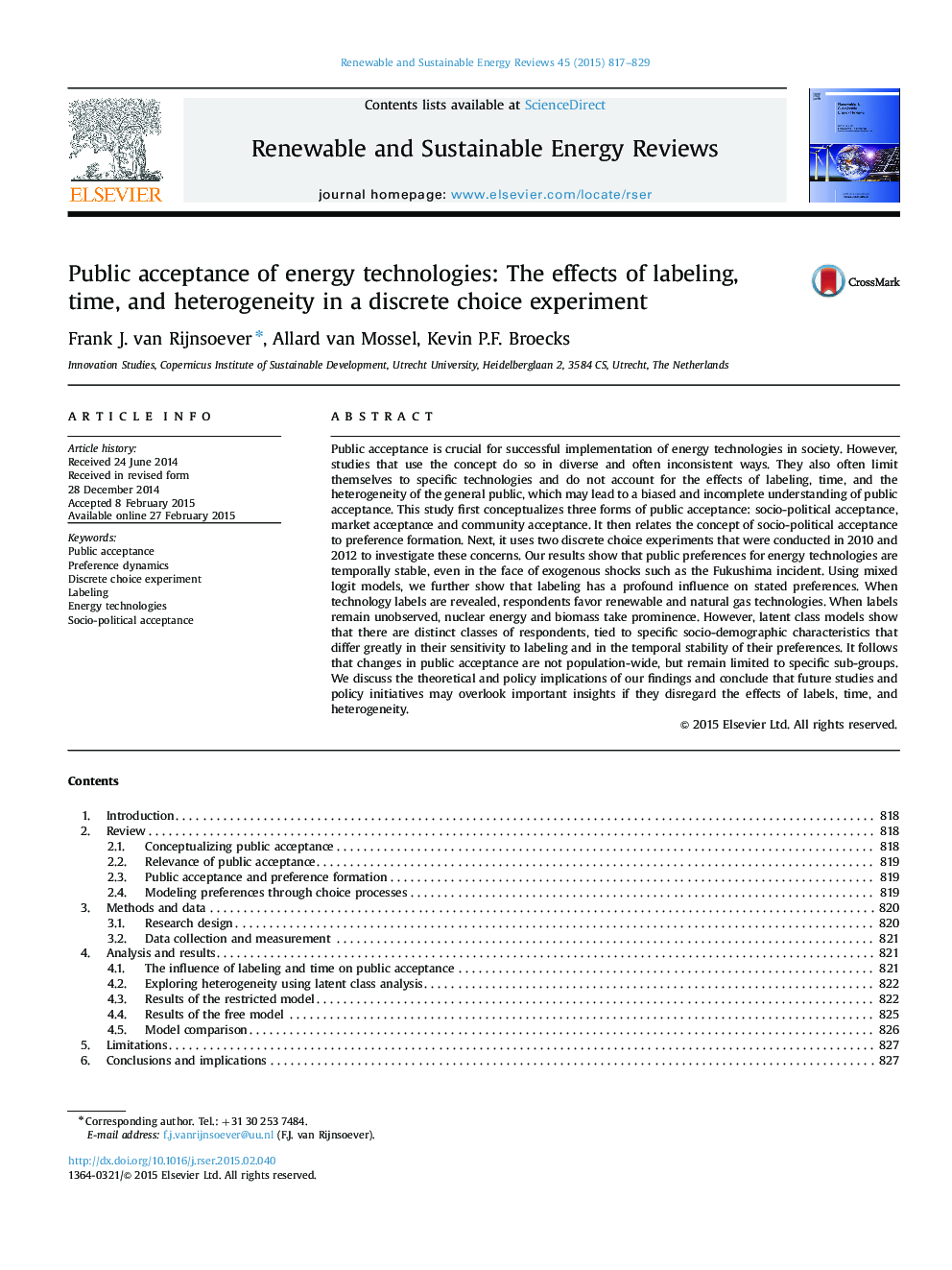| کد مقاله | کد نشریه | سال انتشار | مقاله انگلیسی | نسخه تمام متن |
|---|---|---|---|---|
| 1750086 | 1522340 | 2015 | 13 صفحه PDF | دانلود رایگان |
Public acceptance is crucial for successful implementation of energy technologies in society. However, studies that use the concept do so in diverse and often inconsistent ways. They also often limit themselves to specific technologies and do not account for the effects of labeling, time, and the heterogeneity of the general public, which may lead to a biased and incomplete understanding of public acceptance. This study first conceptualizes three forms of public acceptance: socio-political acceptance, market acceptance and community acceptance. It then relates the concept of socio-political acceptance to preference formation. Next, it uses two discrete choice experiments that were conducted in 2010 and 2012 to investigate these concerns. Our results show that public preferences for energy technologies are temporally stable, even in the face of exogenous shocks such as the Fukushima incident. Using mixed logit models, we further show that labeling has a profound influence on stated preferences. When technology labels are revealed, respondents favor renewable and natural gas technologies. When labels remain unobserved, nuclear energy and biomass take prominence. However, latent class models show that there are distinct classes of respondents, tied to specific socio-demographic characteristics that differ greatly in their sensitivity to labeling and in the temporal stability of their preferences. It follows that changes in public acceptance are not population-wide, but remain limited to specific sub-groups. We discuss the theoretical and policy implications of our findings and conclude that future studies and policy initiatives may overlook important insights if they disregard the effects of labels, time, and heterogeneity.
Journal: Renewable and Sustainable Energy Reviews - Volume 45, May 2015, Pages 817–829
